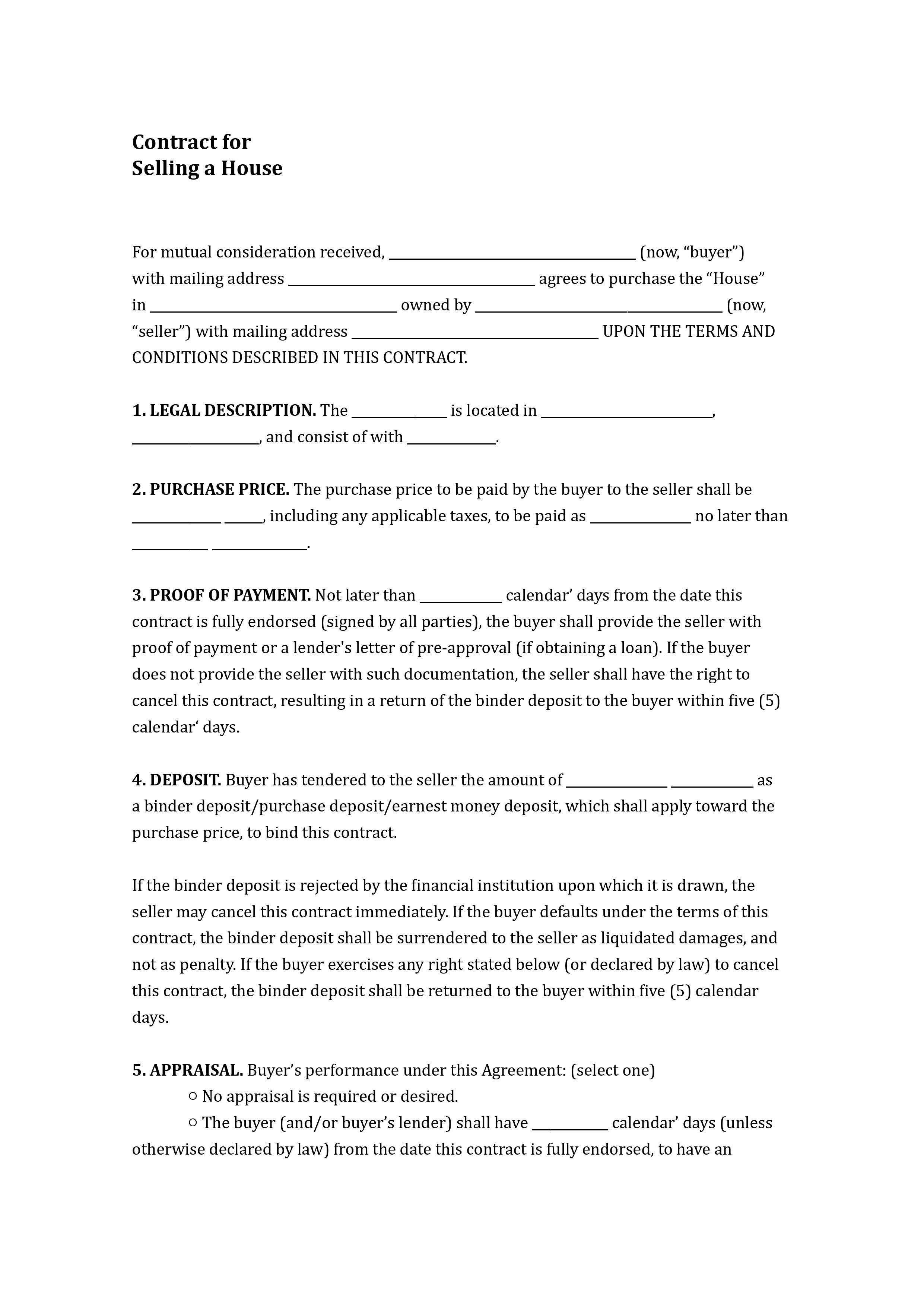Paperwork Essentials for Selling Your House Privately

Embarking on the journey to sell your house privately can be a daunting yet rewarding endeavor. Avoiding the traditional route of using a real estate agent means you can sidestep hefty commissions, giving you more control over the selling process. However, navigating the paperwork can be overwhelming if you're not familiar with what's required. This article will guide you through the essential documents and steps you need to take to sell your home effectively and legally on your own.
Understanding Legal Requirements

Before you dive into the details of selling your house, it's crucial to understand the legal requirements that govern property sales. Here are some fundamental steps:
- Comply with state and local laws: Property sales laws can vary significantly by location. Ensure you are familiar with the regulations in your area.
- Get a home inspection: Although not mandatory, having your home inspected before listing can prevent surprises down the line and reassure potential buyers.
- Title Search: A clear title free of liens or disputes is a must. Hire a title company or attorney to perform this search.
Key Documents Needed

Here are the primary documents you'll need when selling your home:
- Property Deed: This document proves ownership and will need to be transferred to the new buyer.
- Disclosure Documents: You are legally obligated to disclose any known defects or issues with the property.
- Pre-Listing Home Inspection: Not compulsory but recommended to show due diligence.
- Real Estate Purchase Agreement: This contract outlines the terms of the sale including price, closing date, and other contingencies.
- Seller's Affidavit: A document where you swear under oath that there are no undisclosed problems with the property.
- Closing Statement: Summarizes all costs, credits, and the final amount of money being transferred between buyer and seller.
Prepare for Selling

After understanding the legal framework, here's how to get your paperwork in order:
Homeowners Insurance

- Review your policy: Ensure your home insurance is up-to-date and covers the property until the day of closing.
Appraisal and Listing Price

- Appraisal report: Though often optional, this can help in setting a competitive and realistic listing price.
Private Sale Checklist

- Create a checklist of documents:
- Property Deed
- Disclosure Forms
- Real Estate Purchase Agreement
- Seller's Affidavit
- Title insurance
- Closing Statement
💡 Note: It's advisable to prepare these documents in advance to streamline the sale process.
Marketing Your Home

Without the help of a real estate agent, you'll need to handle marketing:
- Create a compelling listing: High-quality photos, a detailed description, and contact information.
- Utilize online platforms: Websites like Zillow, Trulia, or Craigslist can reach a broad audience.
- Virtual tours: Optional but engaging for potential buyers who are not local.
The Sale Process

Here's a breakdown of how to manage the sale process:
Negotiate and Accept Offers

- Review offers: Evaluate all offers considering price, contingencies, and buyer's financial strength.
- Counteroffers: Negotiate terms through counteroffers if needed.
Inspection and Appraisal

- Allow the buyer to conduct their home inspection and arrange for a professional appraisal if requested.
Secure Financing

- Work with the buyer to ensure they have their financing in order before closing.
Sign and Deliver the Contract

- Real Estate Purchase Agreement: Once you and the buyer reach a mutual agreement, sign the purchase agreement.
Pre-Closing Preparations

Before closing:
- Title insurance: Ensure the title is clear by obtaining title insurance.
- Prepare closing documents: Work with a closing agent or attorney to prepare necessary documents.
Closing the Sale
- Attend the closing: This is where you'll sign the transfer of ownership and receive payment.
💡 Note: It's advisable to have a closing attorney or agent present to oversee the process and ensure all paperwork is correctly handled.
Upon closing, you've successfully sold your house. Celebrate this milestone, but remember, the process isn't without its challenges. Keep your paperwork organized, be responsive to buyer inquiries, and stay compliant with all legal requirements. Selling your home privately might require more legwork, but with diligence and attention to detail, it can be a fulfilling experience that results in significant savings and the satisfaction of handling a major life transaction on your own.
What legal documents are absolutely necessary for selling my home privately?
+
The necessary legal documents for selling your home privately include the property deed, disclosure documents, real estate purchase agreement, and a seller’s affidavit. Other documents like title insurance and a closing statement are also typically required.
Do I need a real estate attorney to sell my house?
+
While not mandatory, hiring a real estate attorney can ensure that the sale complies with all local laws and that your interests are protected. They can assist with drafting and reviewing contracts, handling the closing, and addressing any legal issues that might arise.
How can I make sure the buyer’s financing is secure?
+
You can ask for a pre-approval letter from the buyer’s lender. This doesn’t guarantee loan approval, but it shows they have the potential to secure the necessary financing. Regular communication with the buyer and their mortgage broker can also keep you informed about the progress of their financing application.